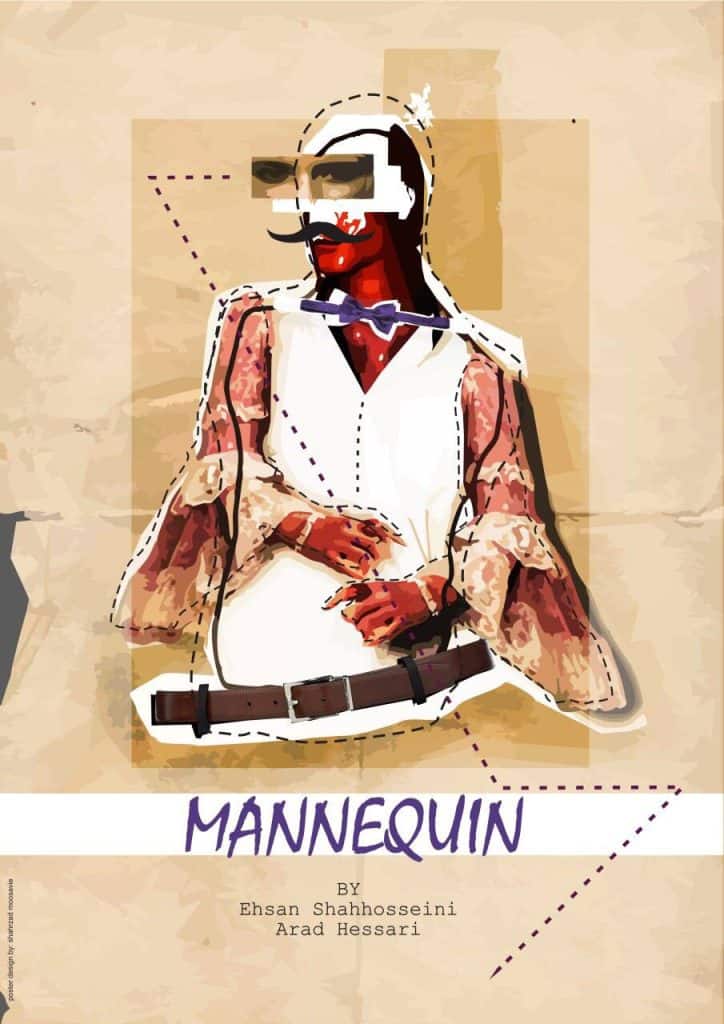After stumbling upon a beheaded goat belonging to a young Muslim family, a young firebrand woman becomes entwined in the sordid affairs of her abusive husband and his hateful politics. Consequently, her troubled existence under the hands of a domineering abuser transforms into something even darker, as she learns the true extent of his cruelty towards his fellow man. At her wits end, the young woman finally chooses to confront her husband in hopes of salvaging a shred of hope for a family targeted by her husband.
“The Scapegoat” review is part of the Submit Your Film Initiative

Tathagata Ghosh certainly knows how to strike a nerve within the short film format, “The Scapegoat” exemplifying the director's knack for getting straight to the base of the issue. In this case, themes of inequality and entitlement based on personal morality/beliefs place a family in the sights of a corrupt businessman – utilizing his perceived superiority as justification for heinous acts. Remarkably tense, the sense of injustice between classes and sexes taps into a visceral disgust at what some will do under the misconception of ‘the greater good'. As such, the most notable strength of “The Scapegoat” is the raw emotional connection it builds with its audience.

Visually, the production has an air of beauty to it despite the unsettling subject matter. The cinematography of Tuhin (single name credit), has a complementary flow that conveys inequality through framing and blocking to have certain characters assert a sense of dominance. Consequently, actor Bimal Giri (who plays the callous Swapan Dutta) feels like a ‘larger than life' menace to his wife and the Muslim family he targets. Furthermore, the transition from meek to a position of indignation of Payel Rakshit (as Neeta Dutta) is equally explored through visual storytelling as her shrunken figure slowly begins to exude confidence as she becomes determined to make the necessary moral choice to save another. Ultimately, the presentation and script work together harmoniously to craft “The Scapegoat” into a beautifully engrossing cinematic experience.
This is not the first time Ghosh has cast actor Bimal Giri as the villain, and the reason is obvious – Giri is a master of playing the despicable. Resonating a presence that puts him at the center of any scene, his abusive ownership of his wife and his complete disregard for his fellow humans is, disturbingly, believable. Opposite Giri, Payel Rakshit gives a subtle performance but one that is transformative in a rather remarkable way – a woman beat down to the point of utter submission choosing to stand up for herself at the crux of the story. Overall, the cast perfectly compliments the vision of Ghosh in creating a deeply emotional study of social injustices.
The only point of contention rests with Ghosh's very black and white way of telling a narrative story; who is morally good and bad is easy to determine before a single utterance from a character (overly apparent with the amount of abuse introduced shortly thereafter). Unfortunately, the lack of subtlety leads to a predetermined narrative, dulling the profundity of revenge against a reprehensible evil. Arguably, this approach suits the short film format and is a way to illicit a quick emotional response from the viewer, but it would be refreshing to see greater depth of character in a feature length film – understanding why a person is ‘evil' instead of just embodying every toxic trait imaginable.
Pushing aside qualms with the delivery of the message, “The Scapegoat” is still undeniably a striking piece of cinema both narratively and visually – the ability to tap into raw emotion is an impressive feat. It is undeniable that Ghosh is going to go on to establish himself as a notable name within Indian cinema, and getting to see his work through short films such, including “Miss Man” and “Mangsho”, has been a deeply insightful journey. I am excited to see his continued growth as a filmmaker and “The Scapegoat” is certainly worth checking out if you get the chance.















